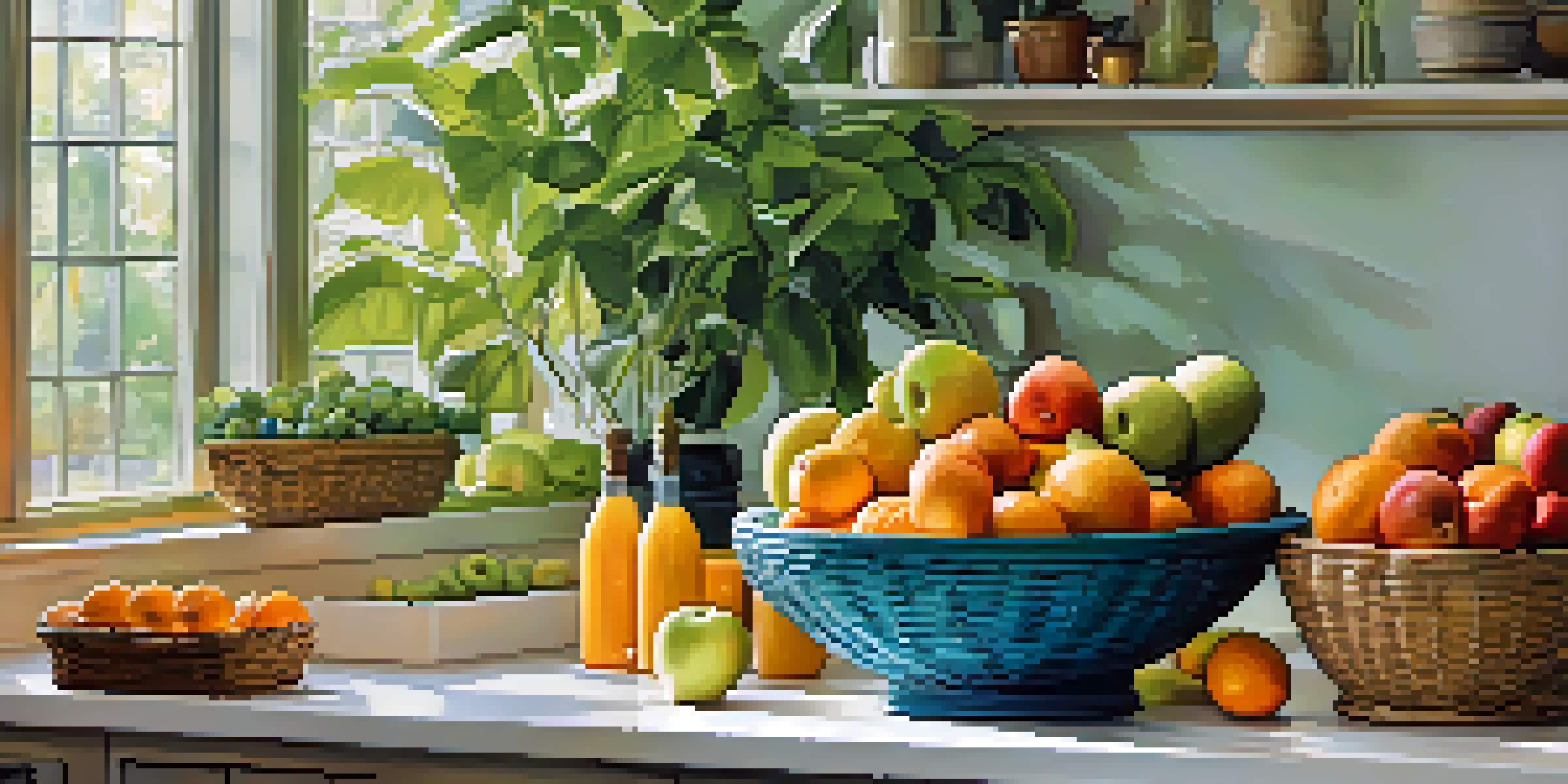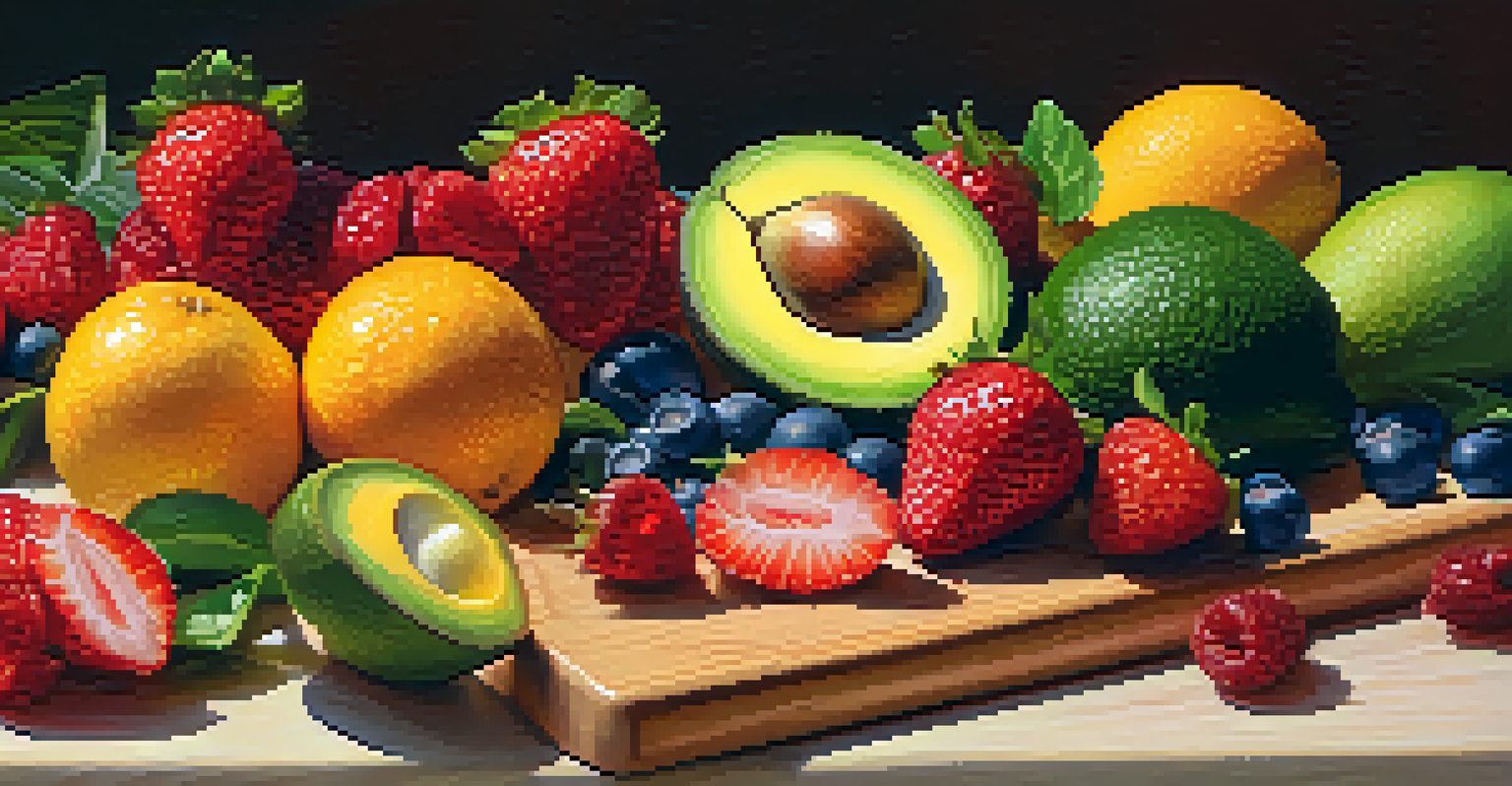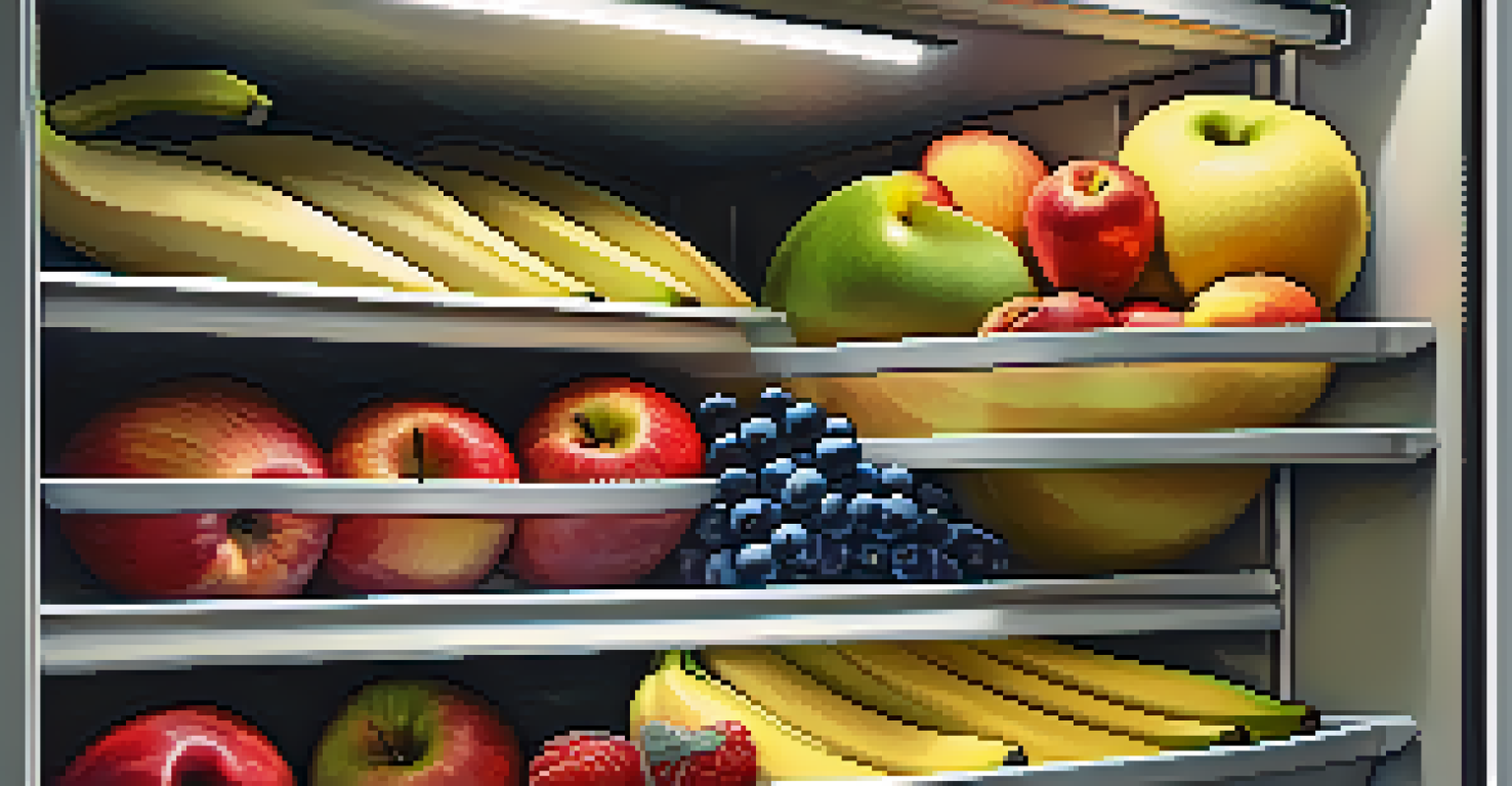How to Store Raw Fruits for Maximum Freshness and Flavor

Understanding the Basics of Fruit Storage
When it comes to storing fruits, understanding their individual needs is crucial. Different fruits have varying ripening processes and storage requirements, which can greatly affect their freshness and flavor. For instance, apples can be stored in a cool, dry place, while bananas thrive at room temperature until they ripen.
The secret to keeping fruits fresh is understanding their unique needs and treating them accordingly.
The key is to recognize that not all fruits are created equal. Some, like berries, are best stored in the refrigerator to slow down spoilage, while others, like avocados, should be kept at room temperature until they are ripe. This basic knowledge can help you create an effective fruit storage strategy.
By paying attention to these nuances, you can significantly extend the life of your fruits and ensure they retain their delicious taste. So, let’s dive deeper into specific storage tips for different types of fruits.
Optimal Temperature for Fruit Storage
Temperature plays a critical role in how long fruits last and how good they taste. Most fruits benefit from being stored in a cool environment, typically between 32°F and 50°F (0°C to 10°C). However, some fruits, like citrus, prefer slightly warmer conditions, around 40°F (4°C).

Refrigeration is fantastic for slowing down the ripening process, but be cautious with fruits that are sensitive to cold, such as tomatoes and bananas. Storing these in the refrigerator can lead to a loss of flavor and texture. Hence, finding the right balance is essential for maintaining their freshness.
Know Your Fruit Storage Needs
Different fruits have unique ripening processes and storage requirements, impacting their freshness and flavor.
Incorporating a thermometer into your storage area can help you monitor temperatures effectively. This small step can make a big difference in how long your fruits stay fresh and tasty.
The Importance of Humidity in Fruit Storage
Humidity is another factor that influences the longevity of your fruits. Most fruits prefer a humid environment to prevent drying out, which can lead to a loss of flavor and texture. Ideally, fruits should be stored in a place with around 85-95% humidity.
An apple a day keeps the doctor away, but only if it’s stored right!
Using a crisper drawer in your refrigerator can help maintain this humidity level. If you're storing fruits that require a drier environment, like apples, consider wrapping them in paper to absorb excess moisture. This way, you can strike a balance between humidity and freshness.
Additionally, regularly checking your fruits for any signs of spoilage can help you avoid the spread of mold, which thrives in humid conditions. Keeping a watchful eye on your stored fruits ensures they remain delightful and delicious.
Storing Ethylene-Producing Fruits Properly
Some fruits, like bananas, avocados, and tomatoes, produce ethylene gas as they ripen. This gas can speed up the ripening process of other fruits and vegetables nearby, leading to premature spoilage. Understanding this can help you store ethylene-producing fruits wisely.
To prevent unwanted ripening, keep these fruits separate from others. A good practice is to store ethylene-sensitive fruits, like apples and pears, away from those that produce it. This simple separation can prolong the freshness of your produce.
Humidity Affects Fruit Longevity
Maintaining the right humidity level is crucial for preventing fruits from drying out and losing their taste.
Labeling your fruits based on their ethylene production can also be helpful. By knowing which fruits to keep apart, you can create a more organized storage system that maximizes freshness.
Best Practices for Washing and Preparing Fruits
Washing fruits before storage can sometimes do more harm than good. While it may seem like a good idea to wash fruits to remove dirt and pesticides, moisture can lead to mold growth if not dried properly. It's best to wash fruits just before consumption.
Instead, consider removing any damaged or bruised fruits as they can produce ethylene gas and affect the freshness of others. Properly preparing your fruits by inspecting them regularly can prevent spoilage and promote longevity.
If you do choose to wash fruits before storing, ensure they are thoroughly dried. Using a clean cloth or paper towel can help remove excess moisture, allowing your fruits to stay fresh for longer.
Creative Storage Solutions for Limited Space
Living in a small space doesn’t mean you can’t store fruits effectively. Creative storage solutions can help you maximize your area while keeping fruits fresh. Consider using tiered fruit baskets, which allow for air circulation and easy access.
Another option is to utilize under-shelf storage or hanging baskets in your kitchen. These solutions not only save space but also create a visually appealing display of your fruits, reminding you to enjoy them regularly.
Ethylene Gas Influences Ripening
Separating ethylene-producing fruits from others can help prolong their freshness and prevent premature spoilage.
Don’t forget about using your refrigerator’s door for fruits that require cooler temperatures. By organizing your produce thoughtfully, you can keep everything fresh and accessible, even in tight spaces.
Understanding the Shelf Life of Common Fruits
Knowing the shelf life of different fruits can help you use them effectively and reduce waste. For example, strawberries typically last about 3-7 days in the fridge, while citrus fruits like oranges can last up to two weeks. This knowledge helps you plan meals and snacks accordingly.
Some fruits, like apples and pears, can last several weeks if stored properly, while others like peaches are best enjoyed within a few days. Understanding these time frames can assist you in making the most of your grocery haul.

By keeping track of the shelf life of your fruits, you can prioritize which ones to eat first and ensure nothing goes to waste. This simple strategy leads to fresher meals and less food spoilage.